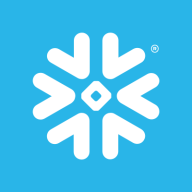

Snowflake and Oracle Database Appliance (ODA) compete in the cloud data management and on-premises integrated systems categories. Snowflake has the upper hand in cloud agility and cost-effectiveness, whereas ODA excels in reliability and operational simplicity for on-premises solutions.
Features: Snowflake offers scalable, flexible infrastructure with multiple format integration, innovative features like time travel and zero-copy cloning. Oracle Database Appliance provides all-in-one hardware-software integration, virtualization platform capabilities, and easy scalability with strong performance using NVMe technology.
Room for Improvement: Snowflake could enhance geo-spatial capabilities, simplify pricing models, and improve UI and machine learning integration. Oracle Database Appliance might strengthen its expanded cluster support, upgrade virtualization features, and improve its cloud service integration and tech support.
Ease of Deployment and Customer Service: Snowflake supports agile deployment in hybrid cloud environments and is praised for managed services but has SLA concerns. Oracle Database Appliance is lauded for pre-packaged simplicity in on-prem deployments but needs better customer support for integration challenges.
Pricing and ROI: Snowflake's pay-as-you-go pricing is flexible but can be unpredictable, offering competitive ROI through operational efficiency without upfront costs. Oracle Database Appliance, though expensive, offers sustained value and ROI through its high-end hardware and integrated database solutions, benefiting businesses looking for all-inclusive offers.
I would rate Oracle support nine or ten out of ten because you can always open a ticket and describe any problems, and the feedback is very quick.
We sought this documentation multiple times but faced difficulty in obtaining it.
I received great support in migrating data to Snowflake, with quick responses and innovative solutions.
I am satisfied with the work of technical support from Snowflake; they are responsive and helpful.
All enterprise-grade analytics tools allow rapid scaling, making our business more competitive.
Snowflake is very scalable and has a dedicated team constantly improving the product.
The billing doubles with size increase, but processing does not necessarily speed up accordingly.
Recently, Snowflake has introduced streaming capabilities, real-time and dynamic tables, along with various connectors.
Oracle Database Appliance is stable and scalable.
Snowflake is highly stable and performs well even with large data sets exceeding terabytes, maintaining stability throughout.
Snowflake is very stable, especially when used with AWS.
Snowflake as a SaaS offering means that maintenance isn't an issue for me.
There is room for improvement in better integration with third-party tools, such as Power BI or Redshift.
For the cloud version, there could be better storage options or more storage for lower prices.
Currently, Oracle Database Appliance is good with no room for improvement.
Enhancements in user experience for data observability and quality checks would be beneficial, as these tasks currently require SQL coding, which might be challenging for some users.
What things you are going with to ask the support and how we manage the relationship matters a lot.
If more connectors were brought in and more visibility features were added, particularly around cost tracking in the FinOps area, it would be beneficial.
Oracle is on the higher end of the pricing spectrum, along with SAP.
I am satisfied with the price for Oracle Database Appliance.
When it comes to cloud support, the setup cost is very cheap compared to other platforms, such as Oracle or PostgreSQL, which typically require higher costs.
Snowflake's pricing is on the higher side.
Snowflake lacks transparency in estimating resource usage.
The most valuable feature is the ease of dashboarding and ease of reporting.
The automated provisioning feature helps speed up the database deployment process because you can use one command or option to resize all the disks or increase memory, depending on the occasion.
The flexibility of deploying Oracle Database Appliance both on-premises and on cloud may help me address my organization's evolving business needs.
We had a comparison with Databricks and Snowflake a few months back, and this auto-scaling takes an edge within Snowflake; that's what our observation reflects.
I have used the Snowflake Zero-Copy Cloning feature in the past while prototyping data in lower environments. This feature is helpful as it saves a lot of time during the data replication process.
Snowflake has contributed to significant cost savings.
| Product | Market Share (%) |
|---|---|
| Snowflake | 10.1% |
| Oracle Database Appliance | 4.3% |
| Other | 85.6% |


| Company Size | Count |
|---|---|
| Small Business | 21 |
| Midsize Enterprise | 9 |
| Large Enterprise | 15 |
| Company Size | Count |
|---|---|
| Small Business | 29 |
| Midsize Enterprise | 20 |
| Large Enterprise | 58 |
Oracle Database Appliance is the easiest and most affordable way for small or medium-size organizations to run Oracle databases and applications and is an ideal platform for remote and edge computing environments. Customers reduce Oracle Database deployment times and management workloads using a prebuilt integrated system with management automation. As demonstrated in IDC’s business value study (PDF), Oracle Database Appliance lets customers grow revenue and control costs, delivering up to a 498% return on investment (ROI) over five years.
Snowflake provides a modern data warehousing solution with features designed for seamless integration, scalability, and consumption-based pricing. It handles large datasets efficiently, making it a market leader for businesses migrating to the cloud.
Snowflake offers a flexible architecture that separates storage and compute resources, supporting efficient ETL jobs. Known for scalability and ease of use, it features built-in time zone conversion and robust data sharing capabilities. Its enhanced security, performance, and ability to handle semi-structured data are notable. Users suggest improvements in UI, pricing, on-premises integration, and data science functions, while calling for better transaction performance and machine learning capabilities. Users benefit from effective SQL querying, real-time analytics, and sharing options, supporting comprehensive data analysis with tools like Tableau and Power BI.
What are Snowflake's Key Features?
What Benefits Should You Look for?
In industries like finance, healthcare, and retail, Snowflake's flexible data warehousing and analytics capabilities facilitate cloud migration, streamline data storage, and allow organizations to consolidate data from multiple sources for advanced insights and AI-driven strategies. Its integration with analytics tools supports comprehensive data analysis and reporting tasks.
We monitor all Data Warehouse reviews to prevent fraudulent reviews and keep review quality high. We do not post reviews by company employees or direct competitors. We validate each review for authenticity via cross-reference with LinkedIn, and personal follow-up with the reviewer when necessary.